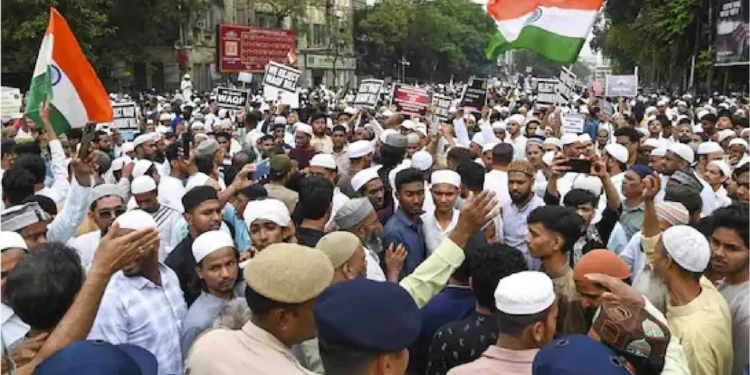In a disturbing turn of events, security measures were significantly enhanced in Murshidabad’s Jangipur region after protests against the Waqf Act turned violent in the Dhuliyan-Ratanpur area. The protests, which had initially begun as a peaceful demonstration, escalated into clashes between protesters and the police, leaving the local authorities grappling with the aftermath of the turmoil.
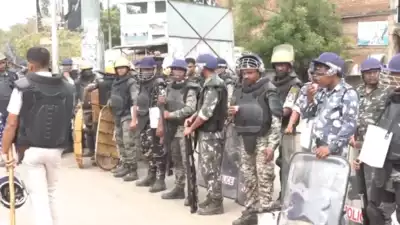
The unrest in Murshidabad’s Jangipur region was sparked by local opposition to certain provisions of the Waqf Act, a piece of legislation governing the management and oversight of Waqf properties in India. The Act, which regulates religious trusts and properties, has faced criticism from various quarters, with some sections of the Muslim community voicing concerns over its implementation and the perceived mismanagement of Waqf properties.
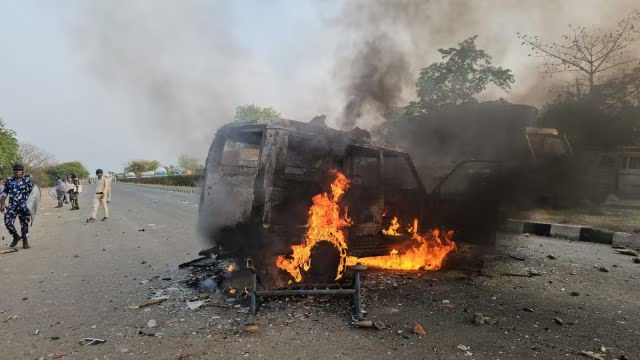
Protesters in Dhuliyan-Ratanpur were demanding reforms to the Waqf Act, calling for better transparency and accountability in the administration of Waqf assets. However, what began as a peaceful protest soon spiraled into violence. Tensions flared asMurshidabad’s groups clashed with security forces, leading to violent confrontations, property damage, and injuries.
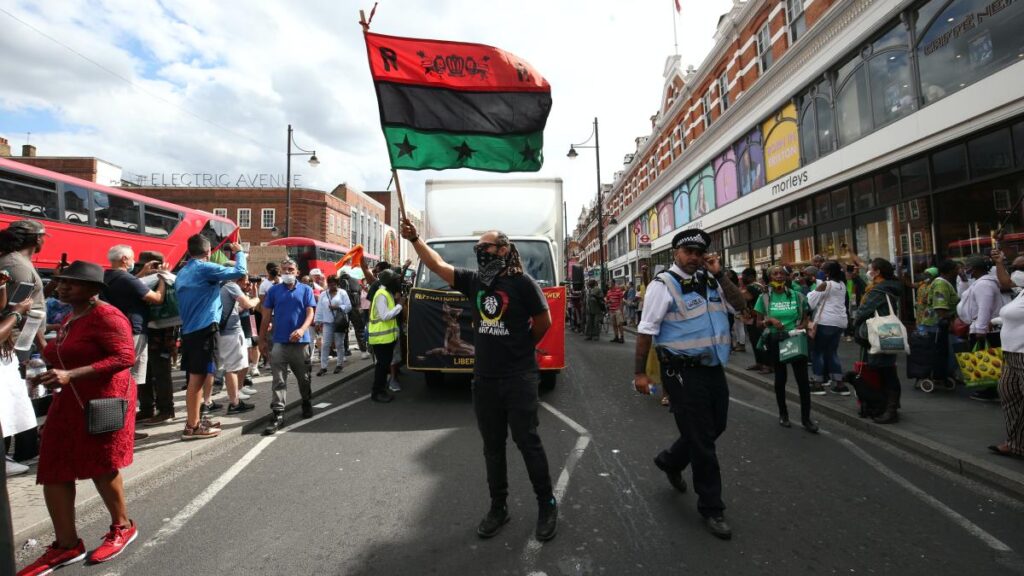
As the situation worsened, violent clashes broke out in the streets of Dhuliyan-Ratanpur, with protesters throwing stones and other objects at law enforcement personnel. In response, the police used tear gas and baton charges to disperse the crowds, but the unrest continued to escalate.
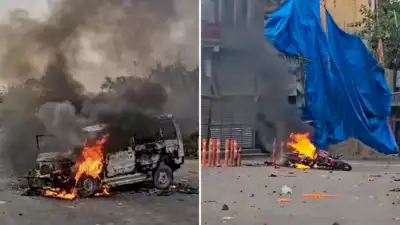
The violence spread to nearby areas, prompting local authorities to intervene and deploy additional security forces to control the situation.Murshidabad’s
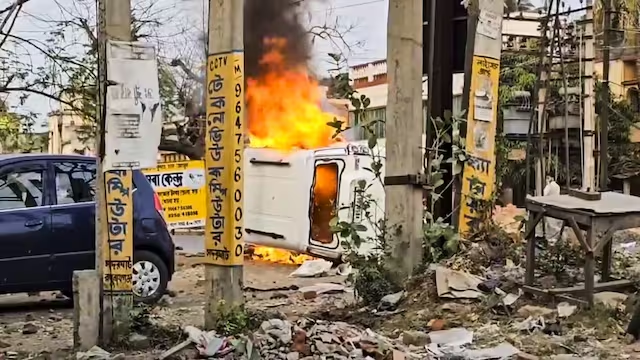
The violence in the region prompted the West Bengal government to step in and ensure that law and order were restored swiftly. Special security arrangements were made, with the deployment of Rapid Action Force (RAF) units and additional police personnel. The situation remains tense, with the authorities urging residents to remain calm and cooperate with the law enforcement agencies.
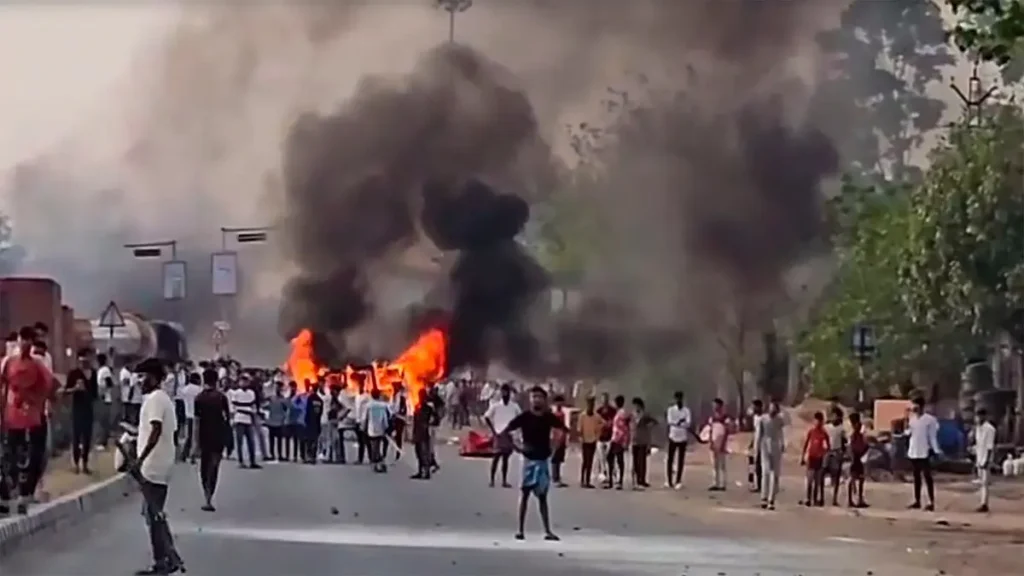
The protests and subsequent violence have drawn widespread political and community reactions. Several political leaders have condemned the violence, calling for calm and dialogue between the concerned parties. At the same time, there have been calls for a review of the Waqf Act to address the grievances of the community, with some demanding a more inclusive and transparent approach to the management of Waqf properties.
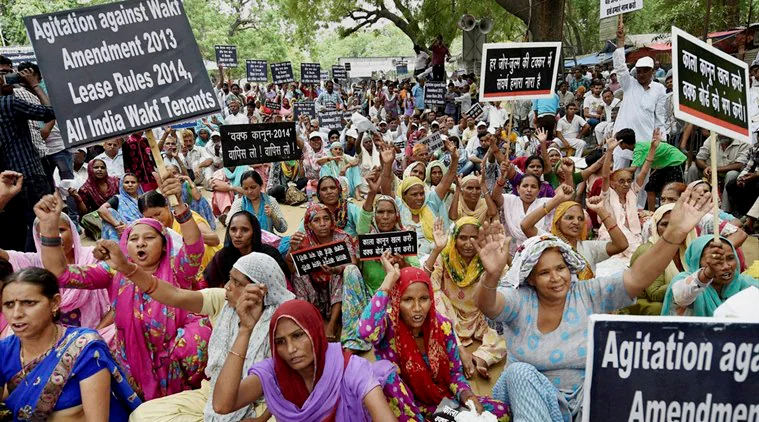
On the other hand, members of the local community have expressed concerns about the heavy-handed response by the police, alleging that the law enforcement agencies used excessive force to quell the protests. Local leaders have called for an independent investigation into the matter, urging the government to look into the underlying causes of the unrest.
As the situation remains volatile, the West Bengal government is closely monitoring developments in the region. The security presence in Jangipur is expected to remain heightened for the time being, with authorities working to maintain peace and prevent further violence.Murshidabad’s
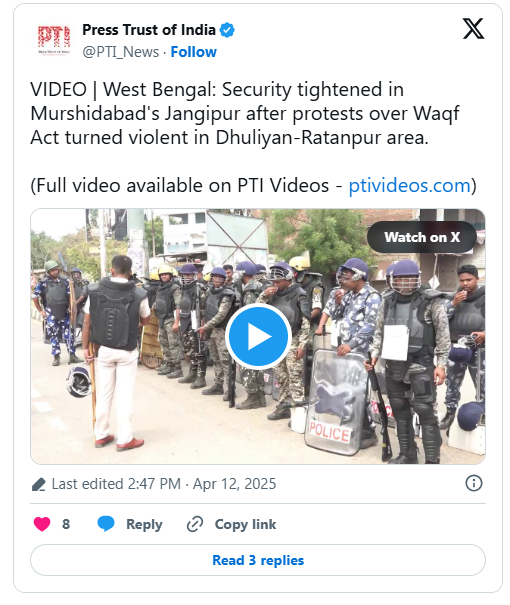
Meanwhile, discussions are ongoing about how to address the core issues raised by the protesters. Many believe that engaging in meaningful dialogue with community representatives and reviewing the provisions of the Waqf Act could be key to avoiding similar incidents in the future.Murshidabad’s
The events in Murshidabad have highlighted the challenges of managing communal tensions and the delicate balance needed to ensure that all sections of society feel heard and represented. For now, the focus is on restoring peace in the region and preventing further unrest.
Also Read : Sowing Hope: The Silent Strength of a Farmer’s Faith 2025
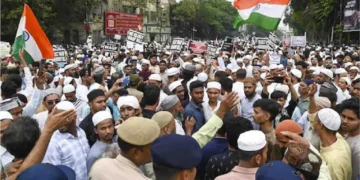














 Categories
Categories
